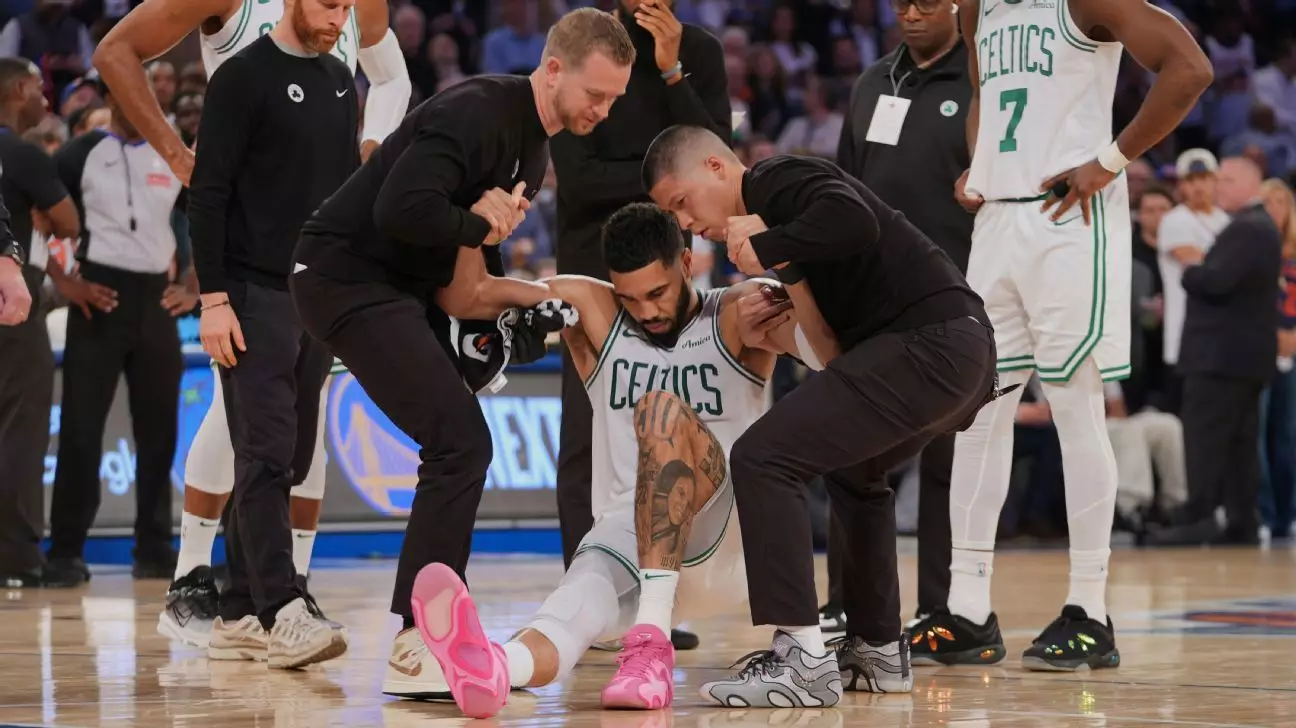On the evening of an otherwise riveting playoff game, Jayson Tatum’s brilliance took a devastating turn. With just three minutes left on the clock, the Boston Celtics superstar crumpled to the hardwood, clutching his right ankle. His health overshadowed the game itself as he lay in visible agony following an explosive performance that saw him score 42 points. This incident, a ruptured Achilles tendon, spoke volumes not only about Tatum’s sheer talent but also the fragility of athletic careers. As he underwent successful surgery hours later, a dark cloud descended upon a team that had pinned its championship hopes on his dynamic skills and leadership. The organization’s rising star was now engulfed in uncertainty.
Legacy in the Making
Since his arrival in Boston as the third overall pick in 2017, Tatum has carved an indelible mark in the NBA. His trajectory from a promising rookie to an All-NBA first-team talent is a testament to hard work and perseverance. Achieving this prestigious honor for the fourth consecutive season—and at just 27 years old—places him in the company of legends. Tatum’s historic playoff performances have begun to etch his name alongside Celtics royalty such as Larry Bird and John Havlicek. He embodies the spirit of a franchise with an unmatched legacy of success, which makes the devastation of his injury even more painful for fans and teammates alike.
A Team in Jeopardy
As the Celtics grapple with the loss of their star player, the psychological toll of such an injury cannot be underestimated. The team was looking poised to extend their playoff legacy, aiming for their fourth consecutive trip to the Eastern Conference Finals. Now, they are left to recalibrate their aspirations. Each passing game without Tatum shifts the weight of expectation to his teammates, who must find a way to fill the massive void. The playoffs are unforgiving, and if Boston is to salvage its season, the players will need to elevate their performance in ways they have not been pushed to do before.
The Unfolding Strategy
Celtics center Al Horford emphasized the team’s focus on Tatum’s health post-injury, demonstrating a unity that is vital during challenging times. This sentiment echoes in the locker room, but it also means that something needs to change. In a series already fraught with tension from blowing leads, Boston must now find resilience not just tactically, but emotionally. Kristaps Porzingis, who recently joined the team, spoke on the reality of their situation: accepting pain as part of the sport. This acceptance could form the backbone of a renewed strategy. It serves as a reminder that basketball is as much about mental fortitude as physical ability.
The Road Ahead
Tatum’s absence shifts the narrative for this season and leaves lingering questions about the future. The Celtics are not only at risk of an early playoff exit but must also prepare for next season without their star player, whose recovery timeline remains uncertain. This season had already been filled with expectations, and now Boston finds itself re-evaluating its roster and strategies due to a single, pivotal injury. The pressure mounts on the coaching staff to adapt quickly, potentially bringing younger players into more significant roles to keep playoff dreams alive, even if they are dimmed by recent events.
The Legacy Defined by Challenge
In the face of adversity, the true character of a team emerges. The Celtics’ storied history has often been marked by resilience, whether in the face of defeat or injury. Tatum’s injury serves as a crossroads, and how this team responds will not only define the remainder of the current playoff run but may also set the tone for future seasons. For fans, the next chapter remains uncertain, replacing championship aspirations with the fervent hope for Tatum’s recovery and a swift return to form. The journey of the 2022-2023 Boston Celtics will undoubtedly be a tale of anguish and potential redemption, reflecting the very essence of sports competition.

